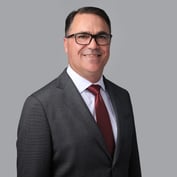The job market is only becoming more competitive for financial advisors. Have you positioned yourself for success? Baby Boomers are retiring in droves, fresh-out-of-college Millennials are already planning their financial futures and advisories large and small are responding accordingly. According to Bureau of Labor Statistics, jobs for advisors are expected to grow 27 percent between 2012 and 2022—more than double the national average rate.
Still, there are plenty of retirees and who still haven’t sought professional financial advice. In fact, a national poll by the Indexed Annuity Leadership Council found that 54 percent of respondents have never spoken to a financial advisor. A Society of Actuaries study likewise found that just 52 percent of pre-retirees and 44 percent of current retirees consult one on a regular basis. That SOA study also found that a majority of workers and retirees are concerned that they’ll deplete their savings, that they won’t have enough money to pay for long-term care and that they might not be able to maintain reasonable living standards for the rest of their lives.
Overall, the need for advisors is greater than ever, and consumers at least seem to recognize their shortcomings when it comes to planning, saving and investing. The hurdle for advisors, then—particularly those new to the profession – is positioning themselves as true resources to potential clients. The right combination of certificates, specializations, experience and partnerships can help, both with building and marketing a valuable and diverse set of skills.
The Right Certifications and Designations
Having a few letters after your name can’t hurt, but they’re not always worth the time and effort they take to earn. “I’ve seen outstanding estate planning and retirement planning work from guys who have no designations, and I’ve seen horrible work come from guys who have CFPs,” said Chris Alberta, president of Alberta Enterprises and CEO of the Senior Benefits Group. “Plus, if you get referred from a distinguished person, you’re not going to be looking for letters.” Retirement-minded clients care about their security and peace of mind, so a solid track record and word-of-mouth advertising are key. Certifications and designations are just the icing on the cake, and whichever ones you seek should help to build your own skills and your clients’ confidence.
Which certifications really help to achieve those goals? The CFP, held by roughly 20 percent of all financial advisors, may be a good place to start. According to the CFP Board’s research, 87 percent of clients who work with an advisor with a CFP are “satisfied” or “very satisfied,” compared to 72 percent who work with an uncertified advisor. The organization’s statistics also indicate that CFPs with less than ten years of experience are twice as likely to earn more than $215,000 annually.
Of course, correlation doesn’t equal causation, and while the CFP is certainly well respected, not all advisors view it as an ideal or even worthwhile option. “Certifications are great, and I’ll never tell someone not to get one, but I think the CFP is a little overhyped,” said Jeremy Shipp, president of Harbor Wealth. “It tends to be branded as the industry standard, but you can get the same amount of useable knowledge through the ChFC.” The American College’s Chartered Financial Consultant program is more customizable, according to Shipp, as it allows advisors to tailor their course loads to retirement-specific topics.
“As far as retirement planning goes, the CLU (chartered life underwriter) designation can be even more useful,” Shipp added. The CLU’s learning objectives specifically include estate planning, succession planning and life insurance. While prospects may not know the differences between the CLU and other designations, focusing on a retirement-specific certification is still a great way for new advisors to learn their craft as efficiently and cost-effectively as possible.
Aside from the CLU, the RICP (retirement income certified professional) and RMA (retirement management analyst) designations may also be worth a look. “I was really impressed with their real-world knowledge and useable information,” said Shipp. Like other certifications, though, they can help to build a skillset specific to retirement planning, and they may earn respect from colleagues and potential partners—but they’re probably not going to be the deciding factor for most prospects.
Specialize or Generalize?
A common question in the industry, the decision to specialize or generalize can be tough for the advisor who hasn’t built a solid clientele or honed a specific skillset. A specialization may be more marketable, but a general practice keeps the door open to a larger and more diverse set of clients.
In such a saturated market, however, specialization is probably the safer route, not to mention more enjoyable. “In our industry, everyone is trying to be a jack of all trades but an expert in nothing,” said Alberta. “Ideally people would be passionate about becoming advisors on specific topics.” From estate management to retirement income planning to small business succession, there are plenty of specialized paths advisors can take as they market themselves and continue their educations. It’s still possible to advise those clients on a wider variety of issues and investments, but casting a narrow net can actually lead to more and longer-term business.








 May 06, 2015 at 05:02 AM
May 06, 2015 at 05:02 AM










